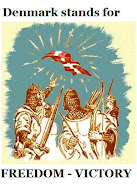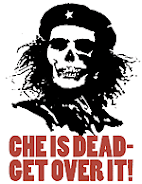Jonah Goldberg writes in the Daily Mail, his book is highly recommended for all, and should be read by each and single college student.
From The Daily Mail
His controversial book Liberal Fascism has already divided his own country. Now, as American political columnist JONAH GOLDBERG's bestseller is published in Britain, he explains why he believes that - contrary to conventional wisdom - fascism and left-wing philosophy are inextricably linked ...
as American political columnist JONAH GOLDBERG's bestseller is published in Britain, he explains why he believes that - contrary to conventional wisdom - fascism and left-wing philosophy are inextricably linked ...
Hallelujah! The Bush nightmare is over. The dark night of American fascism is giving way to the dawn of hope, the Age of Obama. The forces of truth will once again prevail and the crypto-Nazis will be banished to their caves.
That pretty much captures a large segment of current liberal conventional wisdom on both sides of the Atlantic.
Over the course of his presidency, President George W. Bush and his supporters have been called fascists and Nazis thousands of times in books, articles, documentaries and by legions of poster-wielding 'progressive' youths with open-toed shoes and closed minds.
Of course, this shouldn't surprise anyone. For more than 70 years the Left has hurled the F-word at anyone who gets in its way - Stalin invented this tactic to de-legitimise socialist opponents, including Leon Trotsky, assassinated for leading a 'fascist coup'.
As early as 1946, George Orwell wrote that: 'The word Fascism has now no meaning except in so far as it signifies "something not desirable".'
Today, a better working definition of a fascist might simply be a conservative who's winning an argument. But what if fascism means something more than 'bad'. What if fascism was not, and is not, a Right-wing phenomenon at all?
For instance, what were the motivating passions of fascism? For starters, there was the cult of  unity. The Nazis mastered the spectacle of the crowd to project an aura of unity, equality and common purpose. Submitting yourself to the movement was sold as a cleansing, redemptive, fundamentally spiritual experience.
unity. The Nazis mastered the spectacle of the crowd to project an aura of unity, equality and common purpose. Submitting yourself to the movement was sold as a cleansing, redemptive, fundamentally spiritual experience.
Such spectacles were made possible by the cult of personality, the faith that a great leader would rise from among 'us' and bring everyone together. Well, where have we recently seen enormous rallies of ecstatic followers?
According to The New York Times, Barack Obama's own recruiters were trained not to talk about issues, but to 'testify' about how they 'came to Obama' the way one might normally talk about coming to Jesus.
'We are the ones we've been waiting for,' Obama told mesmerised crowds. 'Unity is the great need of the hour,' he insisted. We need unity, he explained, 'not because it sounds pleasant or because it makes us feel good, but because it's the only way we can overcome the essential [empathy] deficit that exists in this country'.
Or as his wife, Michelle, put it: 'We need a leader who's going to touch our souls because, you see, our souls are broken.'
It's worth noting that in the Anglo-American tradition, unity is not, in fact, the highest political value. That's why we have constitutions, separation of powers and independent courts. The hero in the Anglo-American tradition is not the mob, but the man who stands up to it.
And yet the cult of unity remains seductive, particularly in chaotic democracies. One way it manifests itself is in the myth of the Third Way, one of Tony Blair's enthusiasms.
It's ironic how the Left is always ready to brand a conservative who steps off the politically correct reservation as a fascist, but sees nothing wrong with embracing concepts that fit neatly within the fascist wheelhouse.
Italian Fascism and German National Socialism were both sold as a Third Way that would bypass all hard choices. 'Neither Right nor Left!' was a central fascist slogan.
The trouble with the Third Way is its core assumption that any hard choice is a 'false choice'.
Economic growth and environmental regulations, socialised medicine and medical innovation, none of these things is at odds with one another so long as the right enlightened geniuses are in power.
The brilliance of the Third Way is that it sounds like a slogan for centrists and moderates, but is really a utopian vision for rule by benevolent masters. 
Nonetheless, it's also important to remember that fascist isn't necessarily synonymous with 'evil'. Militarism during the first third of the 20th Century was seen as the best means of organising society. Since then, liberals have been searching for a moral equivalent of war that would inspire citizens to drop their personal ambitions and, in President Woodrow Wilson's words, 'marry their interests to the state'.
President Franklin D. Roosevelt's New Deal of the early Thirties was just such an enterprise, complete with militarised work, environmental and youth programs - the New Deal was initially hailed by Italian dictator Benito Mussolini as a great fascist undertaking.
These days, you cannot open a newspaper or magazine without finding some earnest liberal hoping, predicting or begging that Obama will launch a 'new New Deal'.
Obama styles himself after FDR and insists Americans must rally behind his agenda the way the 'greatest generation' fought the Second World War.
But today, the desire to find a moral equivalent of war that will bind the individual to the State manifests itself in unlikely places. Consider the ever-increasing emphasis on 'the children'.
Ever since Plato, the idea of capturing the hearts and minds of children has fascinated social planners. Mussolini cast himself as a 'schoolmaster' to the nation, while in the Soviet Union a prize was given by the State in honour of a boy who informed against his mother and father. Late last year, a British energy company created a website to teach children how to become 'climate cops' and turn in their own parents. 
Hillary Clinton summarised the attitude well when she insisted Americans 'have to start thinking and believing that there isn't really any such thing as someone else's child'.
In her book, It Takes A Village, she reveals that babies of all classes are born in a state of crisis so profound that immediate state intervention is required.
They need immediate aid from the 'helping professions' since even wealthy parents feel stress and 'we know that babies sense the stress'. If ever there was a utopian goal for government, the elimination of parental stress must be it.
Like so many progressives, Clinton seems ignorant of how her ideas might come across to people who don't already agree with her.
For instance, those with a memory of Orwell's 1984 might be disturbed by her idea that the government should mount giant television screens wherever 'people gather and have to wait'. The screens would play, on a continuous loop, official instructions on how to care for your children.
Across the Western world, the politically correct micro-managing of daily life continues to intensify. In Britain, closed-circuit cameras, once used in the name of security, are now used to police everything from dropping litter to eating in your car. In Australia last month, a local government ruled that its beaches must be cleansed of sharp seashells that might cut children's feet. In Canada, thought-crime prosecutions are becoming routine.
It's also worth recalling that the mania sweeping Britain and parts of America for bans on tobacco, alcohol, fattening foods, non-organic foods and non-local foods has significant antecedents in Nazi ideology.
Hitler Youth manuals proclaimed that 'nutrition is not a private matter', a slogan that summarises vast swathes of the eco-Left's propagandising.
Nazis led the world in researching organic foods and alternative medicines (the concentration camp Dachau boasted the largest alternative and organic medicine research lab in the world). 
Heinrich Himmler was an animal rights activist and proponent of 'natural healing'. Hitler and his advisers discussed the need to move the entire nation to vegetarianism as a response to the unhealthiness promoted by capitalism.
Even though we are greeted every day with countless stories of 'political correctness gone mad' we tend to dismiss them as solitary or silly.
But the reality is that they fit into a bigger picture, a coherent Left-wing agenda. The idea is that there can be no safe harbours from politics. If 'you're not part of the solution, you're part of the problem'.
And it's up to the State and the social engineers to solve problems - whether you like it or not.
• Liberal Fascism by Jonah Goldberg is published by Penguin. To order your copy at £9.99 with free p&p, call the Review Bookstore on 0845 155 0713.
































No comments:
Post a Comment